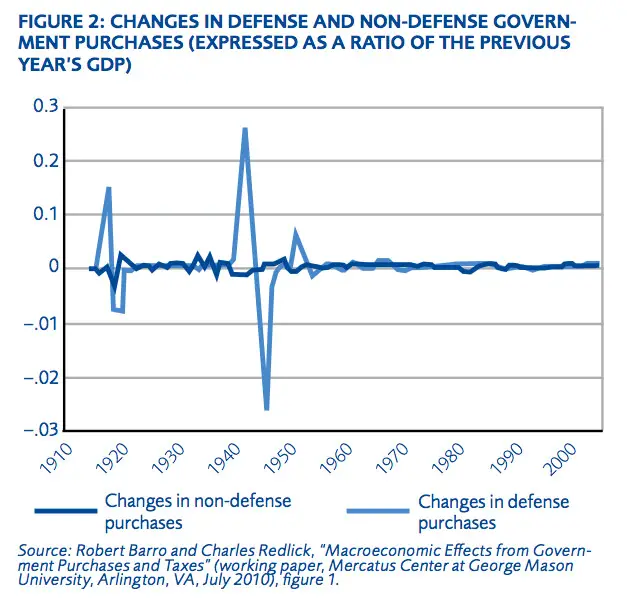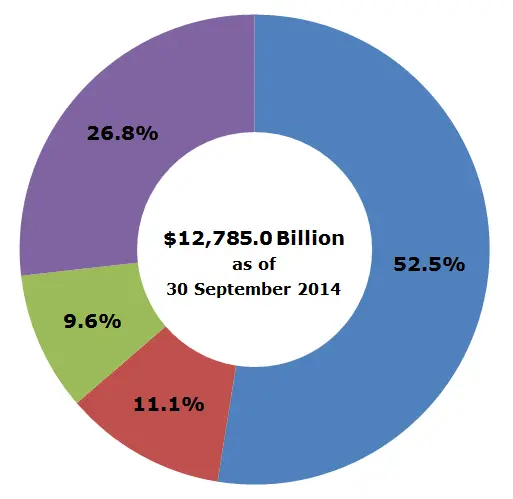What Is A Money Market Fund
A money market fund is a mutual fund that invests solely in cash and cash equivalent securities, which are also called money market instruments. These vehicles are very liquid short-term investments with high .
Money market funds generally invest in such instruments as:
Securities and Exchange Commission rules dictate the fund portfolio must maintain a weighted average maturity of 60 days or less. Just like other mutual funds, money market funds issue redeemable units to investors and must follow guidelines set out by the SEC. All the attributes of a mutual fund apply to a money market mutual fund, with one exception that relates to its net asset value . We’ll take an in-depth look at this exception later on.
How Do Money Market Mutual Funds Work
Like other kinds of mutual funds, money market funds assemble a portfolio of securities and sell shares to investors, who earn returns from the portfolio in the form of income and capital gains. Money market funds build portfolios of cash and cash equivalents like bankersâ acceptances, certificates of deposit , commercial paper, repurchase agreements, and U.S. Treasuries.
Generally speaking, there are three main types of money market funds, each of which invests in different kinds of securities. The majority of their investments are in securities, but they also hold cash and cash equivalents.
- Government money market funds buy short-term government Treasuries. These are mostly notes and bills but may also include bonds and repurchase agreements backed by Treasury notes and bills.
- Prime money market funds invest in corporate paper, bankersâ acceptances, short-term corporate notes and bank debt securities.
- Municipal money market funds buy municipal bonds and other debt securities. Earnings are usually exempt from federal income taxes and sometimes also state income taxes.
Some money market funds are designed for retail investors while others are only for institutional investors and require high minimum investments.
With all investments, you run the risk of losing money. Money market funds, however, are widely considered one of the safest, lowest-risk and least volatile investment options.
Origin Of Money Market Accounts
Money market accounts were introduced in the early 1980s to compete with money market funds. Money market funds were established about a decade before to provide more competitive interest rates than bank accounts, whose rates were limited by the Federal Reserve. Because they were investment products, not banking products, money market funds were able to avoid Fed regulation and pay much higher rates of return. By the late 1970s and early 80s, runaway inflation and high interest rates meant that you could earn much better returns in money market funds than in bank savings accounts.
As money began flowing out of the banking system and into money market funds, Congress allowed banks to begin offering money market accounts that offered more attractive interest rates to help banks and credit unions compete with money market funds. Now, with the rise of high-yield savings accounts, be sure to compare rates across money market funds, money market accounts, and high-yield savings products to make sure youâre getting the best rate for your money.
You May Like: Top Government Contracts Law Firms
Money Market Funds Vs Money Market Accounts
While they sound highly similar, money market funds differ from money market accounts . The key difference is that the former is sponsored by fund companies and carries no guarantee of principal, while the latter are interest-earning savings accounts offered by financial institutions, with limited transaction privileges and insured by the Federal Deposit Insurance Corporation . A money market account usually pays a higher interest rate than a bank savings account, but a slightly lower interest rate than a CD or the total return of a money market fund.
In addition, money market accounts restrict the accessibility of account balances through check writing, while money market fund withdrawals are generally available on demand. Some banks may allow up to six withdrawals per statement cycle for MMAs while others offer no check-writing option at all. Many money market funds offer unlimited check writing but require checks to be written for a minimum dollar amount.
How We Approach Editorial Content

Maintaining independence and editorial freedom is essential to our mission of empowering investor success. We provide a platform for our authors to report on investments fairly, accurately, and from the investors point of view. We also respect individual opinionsthey represent the unvarnished thinking of our people and exacting analysis of our research processes. Our authors can publish views that we may or may not agree with, but they show their work, distinguish facts from opinions, and make sure their analysis is clear and in no way misleading or deceptive.
To further protect the integrity of our editorial content, we keep a strict separation between our sales teams and authors to remove any pressure or influence on our analyses and research.
Read our editorial policy to learn more about our process.
Recommended Reading: Government Land For Sale In Georgia
Why Consider This Fund
- You want long-term growth of capital with some protection against stock market volatility, but can accept the inherent risks of investing in stocks
- You want exposure to equity and fixed-income asset classes
- American Funds’ multiple portfolio counselor system allows each investment professional to implement his or her best investment ideas and helps to provide diversification for the overall portfolio
Money Market Fund Fees
Money market funds charge fees in the form of expense ratios. The higher the expense ratio, the lower your returnsâand when interest rates are low, expense ratios can really eat into your money market fund earnings.
In fact, recent low interest rates have motivated some companies to waive or reposition fees to maintain a zero or positive yield for their funds. Vanguard, for instance, has temporarily reallocated the expenses of the Vanguard Pennsylvania Municipal Money Market Fund to other funds within Vanguard.
âA year and a half ago, you were seeing money market funds paying over 1%, and now youâre seeing them paying almost nothing again,â says Scott Bishop, a certified financial planner with STA Wealth Management in Houston. âEveryone right now wants security, they want protection, but they still want income. Some companies are rebating some of these fees because you canât charge very much on 25 basis points and still pay an interest rate.â
Read Also: Cyber Security Jobs In The Government
What Are Money Market Funds
Money market funds are a type of mutual fund developed in the 1970s as an option for investors to purchase a pool of securities that generally provided higher returns than interest-bearing bank accounts. They have grown significantly in the ensuing decades.
There are many kinds of money market funds, including ones that invest primarily in government securities, tax-exempt municipal securities, or corporate and bank debt securities. In addition, money market funds are often structured to cater to different types of investors. Some funds are intended for retail investors, while other funds that typically require high minimum investments are intended for institutional investors. The rules governing money market funds vary based on the type of money market fund.
For example, money market funds that primarily invest in a variety of taxable short-term corporate and bank debt securities are generally referred to as prime funds. Government money market funds are defined as money market funds that invest 99.5% or more of their total assets in very liquid investments, namely, cash, government securities, and/or repurchase agreements that are collateralized fully with government securities. Retail money market funds are defined as money market funds that are generally limited to natural persons.
Additional Information
Investment Rationale For Government Money Market Funds
In case if you are wondering whether money market mutual funds are right for you at all, you should read this article.
The primary advantages of these funds outside of safety are that they offer daily liquidity and are free from liquidity fees imposed by the SEC. Since they invest in very short-term Treasury bills and repos, they provide easy tradability on a daily basis and you can quickly take advantage of rising rate environments. With the income from federally issued Treasury securities being state tax deductible, investors seeking to lower their tax bills may also favor government money funds.
Don’t Miss: Government Free Money For Seniors
Transparency Is Our Policy Learn How It Impacts Everything We Do
Transparency is how we protect the integrity of our work and keep empowering investors to achieve their goals and dreams. And we have unwavering standards for how we keep that integrity intact, from our research and data to our policies on content and your personal data.
Wed like to share more about how we work and what drives our day-to-day business.
How We Make Money
We sell different types of products and services to both investment professionals and individual investors. These products and services are usually sold through license agreements or subscriptions. Our investment management business generates asset-based fees, which are calculated as a percentage of assets under management. We also sell both admissions and sponsorship packages for our investment conferences and advertising on our websites and newsletters.
Recommended Reading: Government Pell Grants For Single Mothers
Money Market Fund Vs Money Market Account: Whats The Difference
Though they share similar names, money market accounts are different from money market funds. Money market accounts are a type of savings account offered by banks and credit unions that may provide better APYs and easier access to your money than conventional savings accounts. Unlike money market funds, money market accounts are insured by the Federal Deposit Insurance Corporation . This means you are guaranteed never to lose money as long as the amount is under your bankâs FDIC coverage maximum, generally $250,000. This stands in contrast to money market funds, which are investment products that may lose money over time. That said, you might still opt for money market funds over money market accounts if they offer a substantially higher yield. Because they invest in cash and cash-like securities, money market fund risk is minimal.
Public Meeting July 14 2022

The next public meeting of the Financial Literacy and Education Commission will be held on July 14, 2022, from 9:30 to 11:00 a.m. Eastern Time. The meeting will be webcast here.
Under Secretary of the Treasury for Domestic Finance Nellie Liang will chair the meeting on behalf of Secretary of the Treasury Janet Yellen. The Vice Chair of the Commission, Rohit Chopra, Director of the Consumer Financial Protection Bureau will also participate.
You do not need to register to view the webcast. If you require a reasonable accommodation or communication access services such as Communication Access Real-Time Translation or sign language interpreters, please contact .
You May Like: Government Watch List Search Free
How We Use Your Personal Data
How we use your information depends on the product and service that you use and your relationship with us. We may use it to:
- Verify your identity, personalize the content you receive, or create and administer your account.
- Provide specific products and services to you, such as portfolio management or data aggregation.
- Develop and improve features of our offerings.
- Gear advertisements and other marketing efforts towards your interests.
To learn more about how we handle and protect your data, visit our privacy center.
